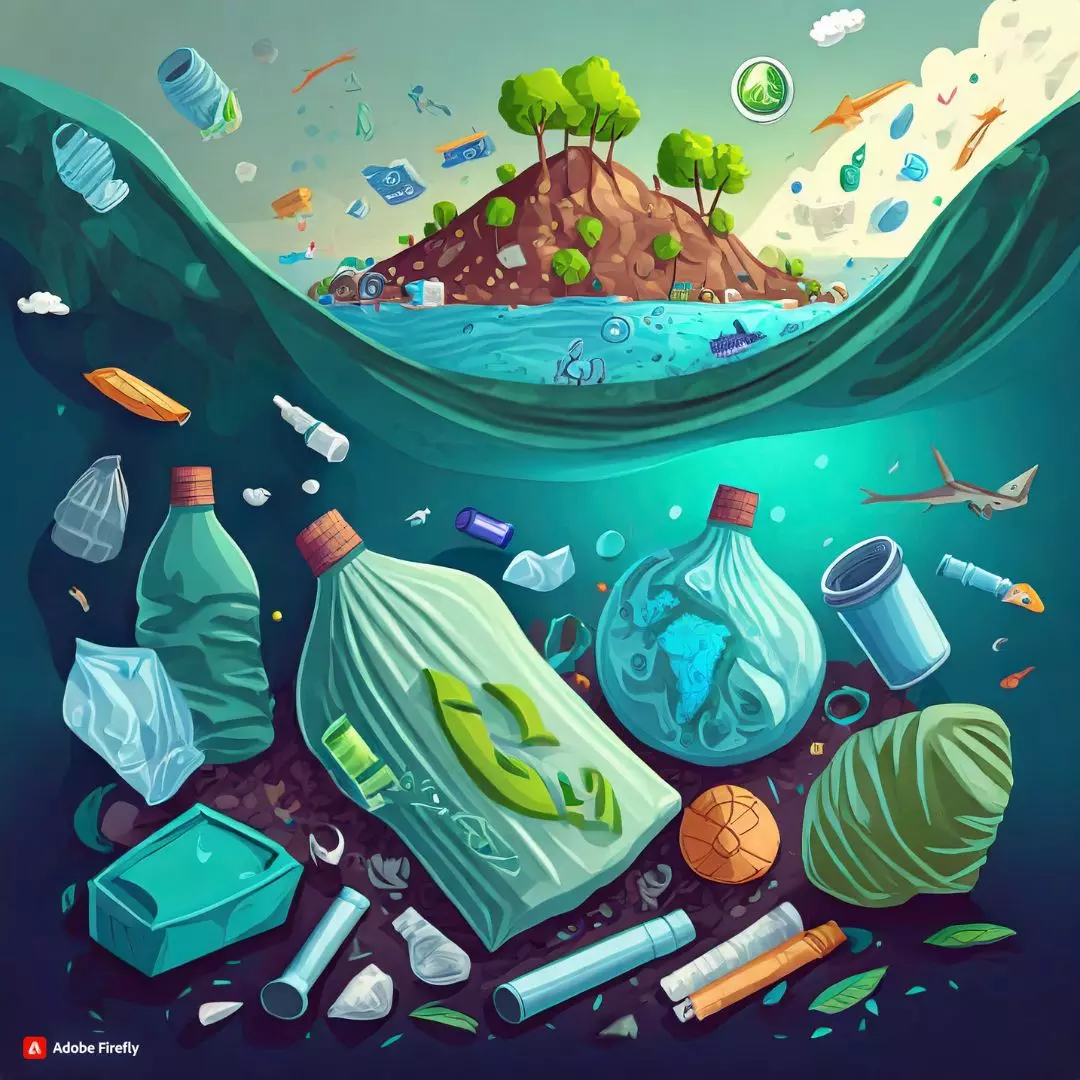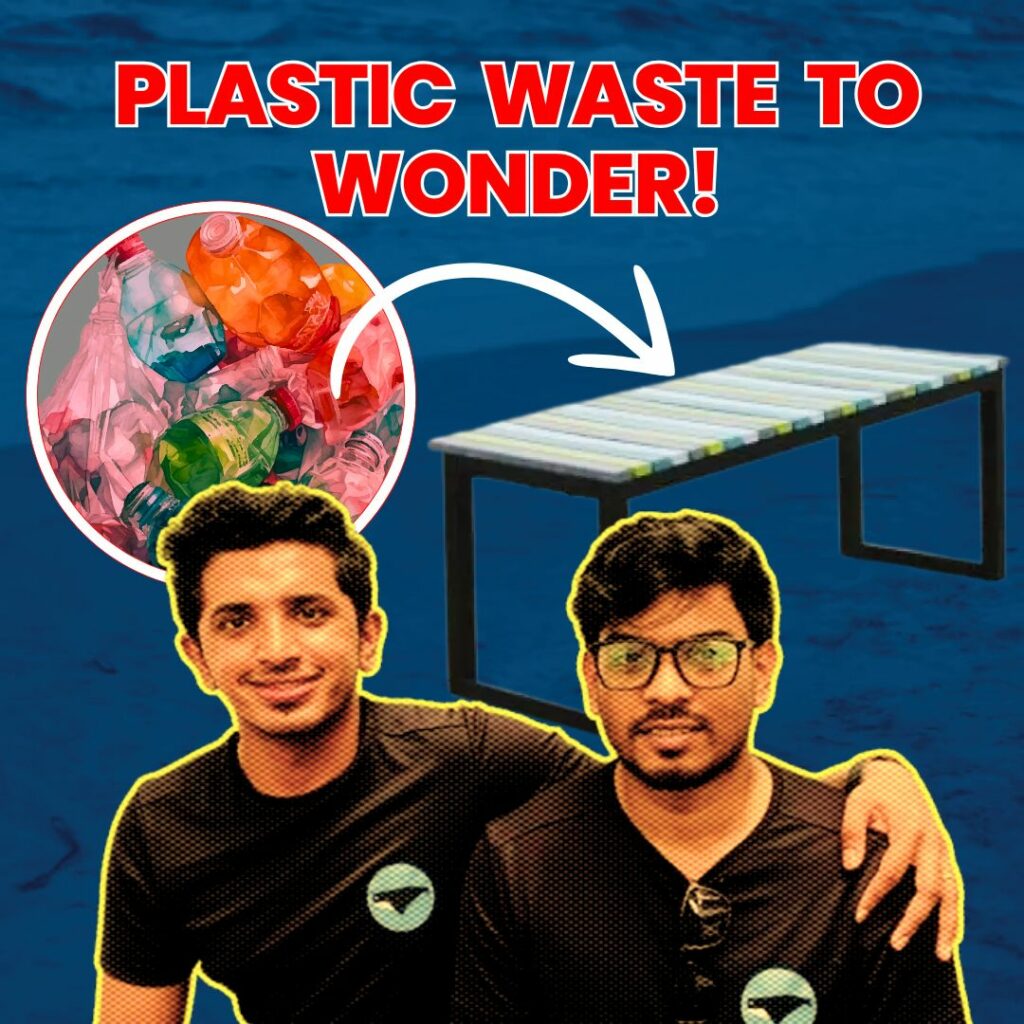Plastic, once a marvel of innovation, has inundated our daily lives, resulting in a surge of environmental concerns. According to the United Nations Environment Programme (UNEP), the plastic dilemma traces its roots back to the mid-20th century when production and waste were modest. However, from the 1970s to the 1990s, plastic waste skyrocketed, surpassing four decades of production combined by the early 2000s. The urgency of addressing this crisis is underscored by the prediction that by 2050, our oceans will harbour more plastic than fish.
In this discourse, we delve into the causes and repercussions of plastic pollution, examining viable solutions to mitigate its impact. From governmental and corporate initiatives to individual efforts, a collective approach is indispensable in combating this pervasive environmental threat.
Causes of Plastic Pollution
Plastic pollution is propelled by the widespread use and improper disposal of plastic products, with an estimated 400 million tonnes of plastic waste generated annually, according to UNEP. The proliferation of single-use plastics, constituting 36% of plastic use, contributes significantly to the crisis. The improper disposal of plastic waste exacerbates the problem, as plastics take hundreds of years to decompose. Microplastics, particles less than 5 mm in size, further compound the issue, infiltrating oceans and posing health risks to marine life and humans.
Plastic production and consumption, reliant on non-renewable resources, also play a pivotal role. The plastic industry’s annual growth of over 3% amplifies the challenge. To curtail plastic pollution, concerted efforts must address these root causes.
The consequences of plastic pollution are profound, impacting marine life, human health, and the economy. Marine creatures face entanglement and ingestion of plastic, leading to injuries, suffocation, and death. Human health is jeopardized as plastics leach harmful chemicals, contributing to cancer, reproductive issues, and developmental delays. Economically, the global cost of plastic pollution is projected to reach $13 trillion by 2050, reflecting the toll on tourism, fisheries, and ecosystem damage.
Mitigating plastic pollution necessitates a comprehensive approach. Reducing single-use plastics, enhancing waste management, promoting recycling, and adopting alternative materials are critical strategies. Clean-up efforts, while crucial, cannot be the sole solution.
Government and Corporate Actions
Governments worldwide are implementing policies and regulations, including bans on single-use plastics, to curb plastic pollution. Corporations are increasingly recognizing their role in sustainability, eliminating single-use plastics, investing in sustainable packaging, and implementing recycling programs.
Every individual can contribute to the fight against plastic pollution. Simple actions such as using reusable bags and water bottles, rejecting single-use plastics, and supporting environmentally friendly businesses can collectively make a significant impact.
Plastic pollution demands immediate attention from individuals, businesses, and governments. The far-reaching impacts on the environment, human health, and the economy necessitate a collaborative and concerted effort. By reducing single-use plastics, improving waste management, promoting recycling, and embracing alternative materials, we can collectively pave the way to a cleaner, healthier planet. As individuals, let us embrace sustainable habits, support eco-friendly businesses, and advocate for robust governmental and corporate initiatives. Together, we can turn the tide on plastic pollution for the well-being of current and future generations.
Also Read: Unveiling The Essence: A Deep Dive Into Aromatherapy’s Healing Potential











